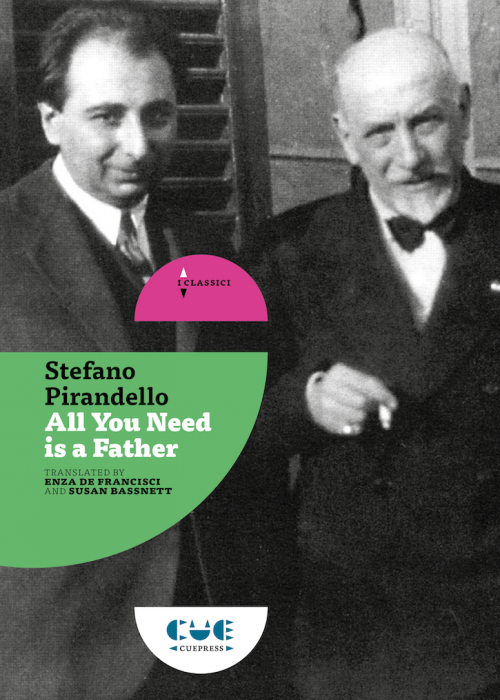
Effettua l’accesso per poter acquistare
- «Il difficile ruolo di 'figlio di papà'. Anche in inglese il rapporto fra i Pirandello», di Gabriella Congiu (La Sicilia)
- «All you need is... Pirandello», di Gabriella Congiu (La Sicilia)
- «La figura di Luigi Pirandello, incombente come un’ombra sul figlio Stefano, ebbe riscontri perfino in Ibsen e in Strindberg», di Andrea Bisicchia (Lo Spettacoliere)
- «Un padre ci vuole», recensione di Gabriella Congiu (Pirandelliana)
Stefano Pirandello
All You Need is a Father
All you need is a father is a parody on fatherhood.
The drama is based on two characters who are polar opposites: Oreste and his father, Ferruccio who, after the tragic loss of his wife, has abandoned his role as a parent leaving Oreste to take charge.
The play begins with Oreste’s distress over Ferruccio’s engagement to a much younger woman.
Into the chaotic household visited by a series of bizarre characters, comes Oreste’s wealthy brother, Alfredo, back from Australia to forestall the family’s foreseeable bankruptcy, with calculated self-interest.
The issue of inheritance and who-gets-what flusters everyone and exposes hidden resentments, but also different forms of love.
Ultimately, there is an acceptance of difference, particularly for Oreste, the son hoping for healing from the wounds inflicted on him by his father.
Contributors Sarah Zappulla Muscarà, Enzo Zappulla, Susan Bassnett
Translators Enza De Francisci, Susan Bassnett
Stefano Pirandello
(1895-1972), was the eldest child of Luigi Pirandello and Maria Antonietta Portolano.
During World War One, he was a prisoner of war in Austria.
After his release, Stefano’s mother was admitted to an asylum in Rome in 1919 owing to her schizophrenia, where she spent the rest of her life.
The decision to section her opened an irreparable gap between Stefano and his father.
In 1922, Stefano married the musician Olinda Labroca and the couple had three children.
In 1924, Stefano helped his father to set up the theatre company, Teatro d’Arte, which would become fundamental for the development of Luigi Pirandello’s works.
As well as writing fiction, Stefano worked as a journalist but later gave this up to support his father until his death in 1936, becoming his secretary, administrator, and general helpmate.
